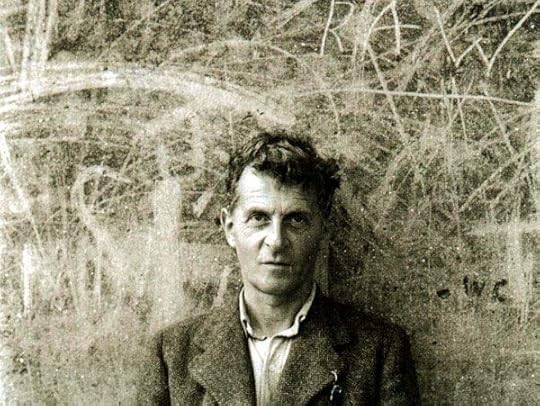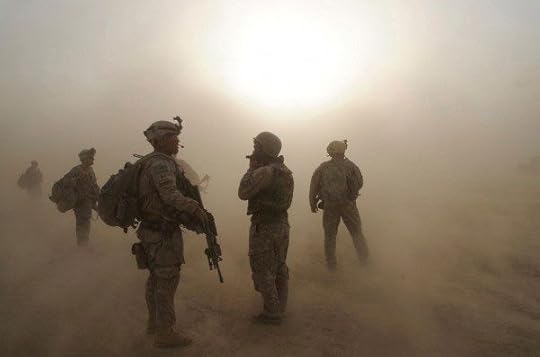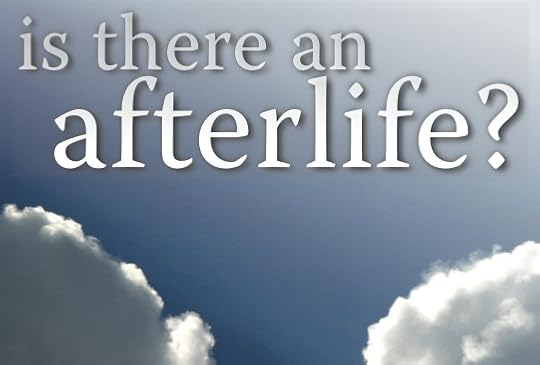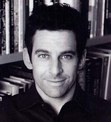Sam Harris's Blog, page 37
March 30, 2011
Being Mr. Nobody

(Ludwig Wittgenstein, date unknown.)
To the consternation of many of my fellow atheists, I often argue that the concept of "atheism" is unnecessary and misleading. Nearly everyone rejects Zeus, Thor, Isis, along with the countless other dead gods of antiquity, and yet no one feels the need to name this condition of unbelief. And so it is with every other species of bad idea: we don't dub ourselves "non-astrologers," "non-homeopaths," and the like, and we need not define ourselves as "atheists" (or "secularists," "rationalists," "skeptics," "humanists," etc.) to disavow the false certainties of mainstream religion. I know this to be true, because I wrote my first book, The End of Faith, without ever using the term "atheism" or even thinking of myself as an "atheist." It was only after the book was published that I discovered I had long been a member of the "atheist" community.
But there is another way to see the problem with the concept of "atheism." Consider Wittgenstein's clever disparagement of Freud's notion of the unconscious:
Imagine a language in which, instead of saying 'I found nobody in the room' one said, 'I found Mr. Nobody in the room.' Imagine the philosophical problems that would arise out of such a convention. (The Blue Book
, p. 69).
"Atheism" is another version of Wittgenstein's Mr. Nobody. When in the presence of Christianity, it's Mr. Sorry-but-I-won't-be-in-church-on-Sunday.
There are an uncountable number of erroneous and unfounded doctrines that we all reject. Why must we name their absence from our lives?

March 27, 2011
Have We Lost the War in Afghanistan?

The prognosis on the war in Afghanistan seems increasingly dismal. In his review of Bing West's new book, The Wrong War: Grit, Strategy, and the Way Out of Afghanistan, (which I have not yet read), Dexter Filkins discusses the challenges posed by Afghan culture and religion:
Time after time, West shows the theory of counterinsurgency scraping up against the hard and jagged ground of the real Afghanistan. In one instance, he examines the work of a group of American soldiers and civilians, known as a provincial reconstruction team, whose job was to provide development assistance to Afghan locals in Asadabad (A-Bad to the Americans) in eastern Afghanistan. It was overseen by a battalion known as the 1-32 and commanded by a lieutenant colonel named Mark O'Donnell. In June 2009, after the reconstruction team had been working there for three years, an American supply truck blew a tire on the main road. A crowd of Afghans gathered, and then suddenly a grenade exploded, killing and maiming several Afghans. A riot ensued. "Kill the Americans!" the Afghans shouted. "Protect Islam!" Only later did a videotape of the incident show clearly that an Afghan had tossed the grenade.
About this, West writes:
"For three years, the provincial reconstruction team had lived in a compound a few blocks from the scene of the tragedy. The P.R.T. had paid over $10 million to hire locals, who smiled in appreciation. Every time a platoon from 1-32 patrolled through town, they stopped to chat with storekeepers and to buy trinkets and candy to give to the street urchins. Yet the locals had turned on the soldiers in an instant. That the townspeople in A-Bad who profited from American protection and projects would believe the worst of O'Donnell's soldiers — whom they knew personally — suggested that the Americans were tolerated but not supported, regardless of their good works and money."
Is Afghanistan a lost cause?

March 20, 2011
Finding faith amid disaster
By Jessica Ravitz
Around the world, people are still struggling to come to terms with the Japanese earthquake and tsunami, which have left more than 8,000 dead, thousands more missing and hundreds of thousand others homeless. In times like these, many people find comfort in their faith. But disasters can also challenge long-held beliefs. The CNN Belief Blog asked some prominent voices with different views on religion how they make sense of such suffering, where they see inspiration amid destruction and how they respond to people who wonder, "How could God let this happen?"
Responses from Rabbi Harold Kushner, Thich Nhat Hanh, Sam Harris, and others.


March 14, 2011
March 4, 2011
Is There an Afterlife?
January 29, 2011
Response to Critics
Among the many quandaries a writer must face after publishing a controversial book is the question of how, or whether, to respond to criticism…


January 19, 2011
We are Lost in Thought
WHAT SCIENTIFIC CONCEPT WOULD IMPROVE EVERYBODY'S COGNITIVE TOOLKIT?


The Edge Annual Question — 2011
January 9, 2011
December 30, 2010
Sam Harris's Blog
- Sam Harris's profile
- 9007 followers









